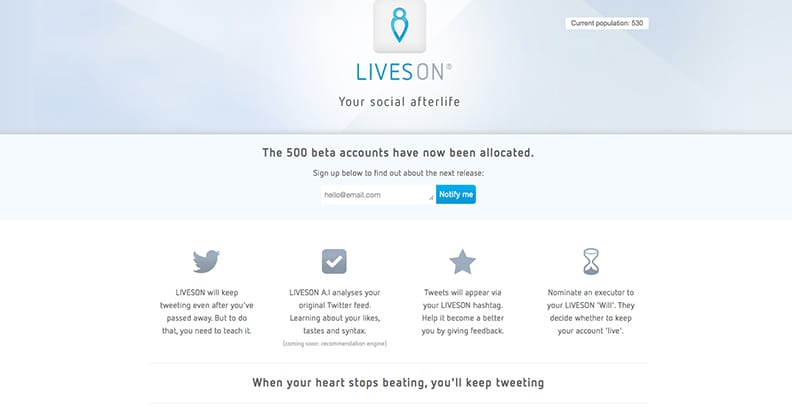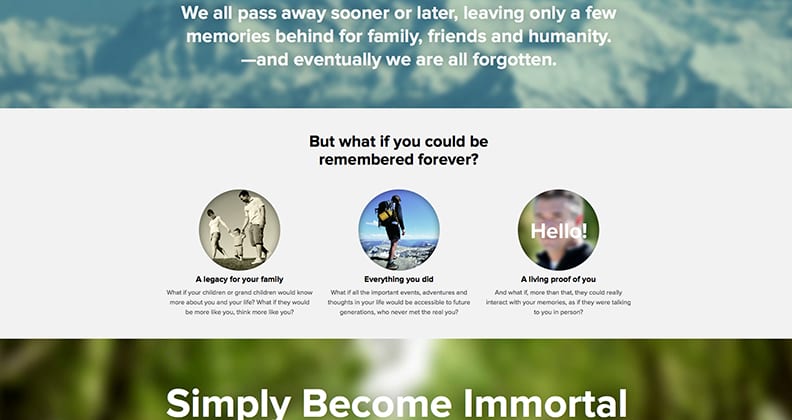More than forty per cent of the Australian population use Facebook every day, two million Australians have Twitter accounts and 1.6 million are on Instagram. We sign up, log in, and broadcast our lives without giving much thought to our social media footprints.
A recent trend has capitalised on our society’s obsession with social media and begun to raise the question – what happens to your social media accounts when you die? There are a range of post-mortem social media options on the market right now that are eager to help people answer that very question.
One service is LivesOn, whose tagline states ‘when your heart stops beating, you’ll keep tweeting’. LivesOn does this by analysing your past Twitter activity and using that history to select articles, tags or subjects that you might have shared and then sharing them on your behalf – from the grave.
Senior Lecturer in the Department of Internet Studies at Curtin University, Dr Tama Leaver, points out that people generally post limited aspects of themselves online and that the versions of people we would experience from their online history wouldn’t be the full spectrum of their personality but instead a half-made replica of the person you knew. Essentially, the technology powering this style of after-death social media interaction has the potential to be more unnerving than an endearing memory of someone you once knew.
Taking the idea even further is a new start up company called Eterni.me who will collect almost everything you create online: your Facebook posts, tweets, emails, photos, videos and Fitbit information to create a 3D virtual avatar that your family and loved ones can interact with once you pass away. The users are encouraged to ‘train’ their avatar selves, which will respond to the training through complex artificial intelligence algorithms, to improve its conversational skills become more similar to the person it’s emulating.
The reaction to Eterni.me has varied from intense dislike to enthusiastic interest, with 3,000 people signing up within the first four days of the website being launched.
“People grieve in different ways,” says Dr Leaver. “For some people the idea of an interactive avatar after someone has passed is creepy, for others this might be a fantastic thing where they feel like they are engaging with someone’s legacy in a meaningful way.”
Our obsession with leaving a legacy isn’t a new concept. Sigmund Freud called our relationship with immortality “the real secret of heroism” stating that everyone has an unconscious sense of invincibility.
“The promise of some sort of life after death is something that has fascinated us as a culture for a long period of time and exploring that idea through social media is, of course, going to hold people’s interest,” says Dr Leaver.
Immortality aside, the idea of data mining our own lives after death has brought up a slew of legal and ethical concerns. What if emails not intended for the public eye were discovered once permissions were passed on to the family or the avatar? How would the Eterni.me avatar interact with a spouse versus a child? Is it appropriate to extend the grieving process with an imitation of a person?
The reality is that the Internet is comparatively young and we are still learning the most appropriate ways to interact with and within it. Just as is seen with Eterni.me and other post-mortem services, questions are raised as to whether extending versions of ourselves is just a new online avenue to explore or something outright unnerving.
“Anyone signing up for this service has to realise that they won’t be the ones experiencing this”, says Dr Leaver. “The better question to ask is whether your family and friends, would enjoy the service.”




